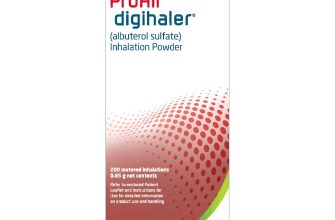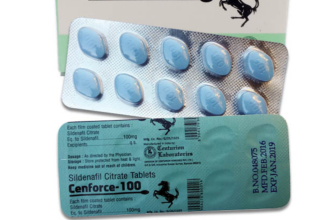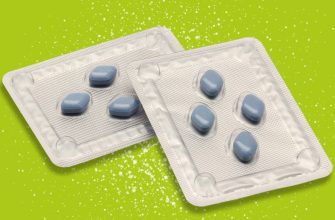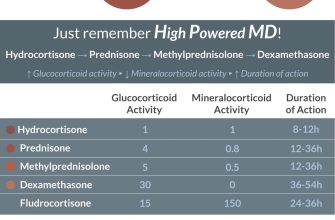If you’re concerned about a possible connection between Accutane (isotretinoin) and arthritis, know that research indicates a potential link, but it’s complex. Some studies show an increased risk of developing inflammatory arthritis, specifically, after Accutane treatment. This risk appears higher in individuals with a pre-existing family history of autoimmune diseases.
The exact mechanism remains unclear, but scientists suggest that Accutane’s impact on skin cells might trigger an immune response that mistakenly attacks joint tissues. This is crucial to understand because it highlights the need for careful monitoring during and after treatment. Regular checkups with your dermatologist and rheumatologist are recommended.
Early detection is vital. Be aware of symptoms like joint pain, stiffness, swelling, and limited range of motion. Reporting these symptoms promptly to your healthcare provider is paramount. Early intervention significantly improves arthritis management. Don’t hesitate to communicate any concerns; open communication is key to successful treatment.
Remember: This information shouldn’t replace professional medical advice. Always discuss your individual risk factors and concerns with your doctor before starting or continuing Accutane treatment. They can provide personalized guidance based on your medical history and current health status. A collaborative approach ensures the best possible outcome.
- Accutane and Arthritis: Understanding the Link
- Accutane’s Mechanism of Action and Potential for Joint Pain
- Frequency and Severity of Joint Pain
- Managing Joint Pain
- Reported Cases of Arthritis and Arthralgia in Accutane Users: Prevalence and Severity
- Differentiating Accutane-Induced Joint Pain from Other Forms of Arthritis
- Key Differences in Symptoms
- Comparing Diagnostic Features
- Seeking Professional Guidance
- Managing Joint Pain Associated with Accutane: Treatment Strategies and Lifestyle Modifications
- Long-Term Effects of Accutane on Joint Health: What the Research Says
- Arthralgia and Arthritis
- Types of Arthritis Reported
- Important Considerations
- Recommendations for Patients
- Further Research
Accutane and Arthritis: Understanding the Link
Accutane, or isotretinoin, a powerful medication for severe acne, has been linked to an increased risk of developing arthritis. This isn’t a guaranteed outcome, but a potential side effect dermatologists discuss with patients.
Studies show a correlation between Accutane use and the onset of inflammatory arthritis, specifically, ankylosing spondylitis and psoriatic arthritis. The exact mechanism isn’t fully understood, but researchers believe it may involve the medication’s impact on bone metabolism and immune system function.
Symptoms may include joint pain, stiffness, swelling, and reduced range of motion. These symptoms can manifest during treatment or even after Accutane use has ended. The severity varies greatly between individuals.
If you experience joint pain while taking Accutane, consult your dermatologist or rheumatologist immediately. Early diagnosis and treatment are key to managing arthritis effectively. Your doctor will assess your symptoms and determine the appropriate course of action, which may involve adjusting your medication or initiating arthritis treatment.
Open communication with your healthcare provider is paramount throughout your Accutane treatment. Don’t hesitate to report any new or worsening symptoms, even seemingly unrelated ones. Proactive monitoring helps ensure your safety and wellbeing.
Remember, this information is for educational purposes and does not constitute medical advice. Always consult a qualified healthcare professional for personalized guidance and treatment.
Accutane’s Mechanism of Action and Potential for Joint Pain
Accutane, or isotretinoin, reduces sebum production by binding to retinoic acid receptors in sebaceous glands. This action significantly decreases acne breakouts. However, these same receptors are present in many other tissues, including joints. This binding can trigger inflammatory responses in some individuals, leading to joint pain. The exact mechanism behind Accutane-induced joint pain isn’t fully understood, but it’s likely related to this interaction with retinoic acid receptors and subsequent inflammation.
Frequency and Severity of Joint Pain
Joint pain associated with Accutane use is generally mild to moderate. Studies show its incidence varies, with some reporting it in around 10-20% of users. The pain typically manifests as arthralgia (joint pain) without significant swelling or stiffness, and usually affects the hands, feet, and knees. However, more severe cases are possible.
Managing Joint Pain
If you experience joint pain while taking Accutane, inform your dermatologist immediately. They may recommend reducing the dosage or temporarily suspending treatment. Over-the-counter pain relievers like ibuprofen or naproxen can provide relief for mild pain. In more severe cases, your doctor might prescribe stronger medications. Staying hydrated and engaging in low-impact exercise can also help.
Reported Cases of Arthritis and Arthralgia in Accutane Users: Prevalence and Severity
Studies show arthritis and arthralgia, or joint pain, occur in a small percentage of Accutane users. The exact prevalence varies across studies, ranging from 1% to 7%. This variability stems from differing study designs, populations, and reporting methods. Larger, well-designed studies are needed to provide a more precise estimate.
Reported cases typically involve mild to moderate symptoms. Severe arthritis requiring hospitalization is rare. The most commonly affected joints are the hands and feet, although other joints can be involved. Symptoms usually manifest during treatment and often resolve after treatment cessation. However, some individuals may experience persistent symptoms.
Severity often correlates with the cumulative dose of Accutane. Higher doses appear linked to a greater risk of developing arthritis. However, individual responses vary greatly; some patients experience no joint problems despite high doses, while others show symptoms at lower doses. This highlights the complex interplay of individual susceptibility and Accutane’s effects.
Early detection is key. Patients should report any joint pain or stiffness to their physician immediately. Early intervention may help manage symptoms and prevent long-term complications. Treatment options for Accutane-induced arthritis may include nonsteroidal anti-inflammatory drugs (NSAIDs), rest, and physical therapy.
It’s important to note that a causal link between Accutane and arthritis remains under investigation. While a correlation exists, additional research is required to definitively establish causality. Nevertheless, the observed association warrants careful monitoring of patients and prompt medical attention for any joint-related symptoms.
Differentiating Accutane-Induced Joint Pain from Other Forms of Arthritis
Accutane (isotretinoin) can cause joint pain, often described as arthralgia, but it’s crucial to distinguish it from other arthritic conditions. Accutane-related pain typically manifests as mild to moderate aches, often in the hands and feet. It usually resolves when Accutane is stopped. Severe, persistent, or inflammatory joint pain suggests a different diagnosis.
Key Differences in Symptoms
Unlike inflammatory arthritis (like rheumatoid arthritis or psoriatic arthritis), Accutane-induced joint pain rarely involves significant swelling, redness, or stiffness. Moreover, morning stiffness is uncommon with Accutane-related arthralgia. Inflammatory arthritis, on the other hand, often presents with marked morning stiffness, lasting for at least 30 minutes.
Comparing Diagnostic Features
| Feature | Accutane-Induced Arthralgia | Inflammatory Arthritis |
|---|---|---|
| Severity | Mild to moderate | Can range from mild to severe |
| Location | Often hands and feet | Variable; may affect any joint |
| Inflammation | Minimal or absent | Significant swelling, redness, warmth |
| Morning Stiffness | Uncommon | Common, lasting ≥30 minutes |
| Duration | Resolves after stopping Accutane | Persistent, often chronic |
| Blood Tests | Usually normal inflammatory markers | Often elevated inflammatory markers (CRP, ESR) |
Seeking Professional Guidance
If you experience joint pain while taking Accutane, discuss your symptoms with your dermatologist or rheumatologist. They can perform a thorough examination, order relevant blood tests (like inflammatory markers), and potentially use imaging techniques (like X-rays) to reach an accurate diagnosis. Prompt medical attention ensures timely management and helps rule out more serious conditions. Accurate diagnosis is paramount for appropriate treatment.
Managing Joint Pain Associated with Accutane: Treatment Strategies and Lifestyle Modifications
Consult your dermatologist or rheumatologist immediately if you experience joint pain while taking Accutane. They can assess the severity and determine the best course of action.
Over-the-counter pain relievers like ibuprofen or naproxen can often alleviate mild to moderate discomfort. Always follow the recommended dosage instructions.
Your doctor might prescribe stronger pain medications, such as acetaminophen or opioids, if necessary. Discuss potential side effects and risks thoroughly with your physician.
Regular low-impact exercise, such as swimming or walking, can improve joint flexibility and reduce stiffness. Avoid high-impact activities that could exacerbate pain.
Applying heat or cold packs to affected joints can provide temporary pain relief. Experiment to determine which works better for you.
Maintaining a healthy weight reduces stress on your joints, lessening discomfort. Focus on a balanced diet and regular exercise.
Ensure adequate hydration by drinking plenty of water throughout the day. Dehydration can worsen joint pain.
Consider physical therapy to improve range of motion and strengthen muscles supporting your joints. A therapist can tailor a program to your specific needs.
In some cases, your doctor may recommend medications targeting inflammation, like low-dose corticosteroids. These are usually used for short periods due to potential side effects.
Listen to your body. Rest when needed and avoid activities that increase your pain. Managing pain requires a balanced approach.
Long-Term Effects of Accutane on Joint Health: What the Research Says
Current research suggests a possible link between Accutane use and a slightly increased risk of developing certain musculoskeletal problems. However, the relationship isn’t fully understood, and more research is needed.
Arthralgia and Arthritis
Studies show a correlation between Accutane use and reports of arthralgia (joint pain) and, less frequently, arthritis. These effects are typically mild and often resolve after treatment ends. However, some individuals may experience persistent symptoms.
- One study found approximately 1-2% of Accutane users experience arthralgia.
- Cases of inflammatory arthritis are rarer, with estimates ranging from less than 1% to 3%.
The exact mechanism by which Accutane might cause these joint issues remains unclear. Some theories suggest it may relate to the drug’s effects on bone growth and metabolism, or inflammation processes.
Types of Arthritis Reported
While various forms of arthritis have been reported, studies have highlighted a possible association with:
- Reactive arthritis
- Psoriatic arthritis (in patients predisposed to psoriasis)
- Undifferentiated inflammatory arthritis
Important Considerations
It’s crucial to note that many individuals taking Accutane do not experience joint problems. The risk appears small for most, but individual susceptibility varies greatly. Factors like genetics, pre-existing conditions, and dosage may play a role.
Recommendations for Patients
- Openly discuss any joint pain or discomfort with your dermatologist.
- Report any new or worsening joint symptoms immediately.
- Regular check-ups with your physician are advised, especially if you have a family history of arthritis.
Further Research
More long-term studies are necessary to fully elucidate the long-term effects of Accutane on joint health and to determine precise risk factors.








